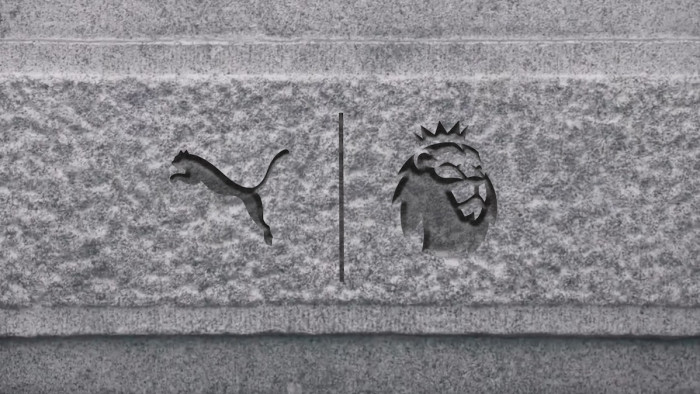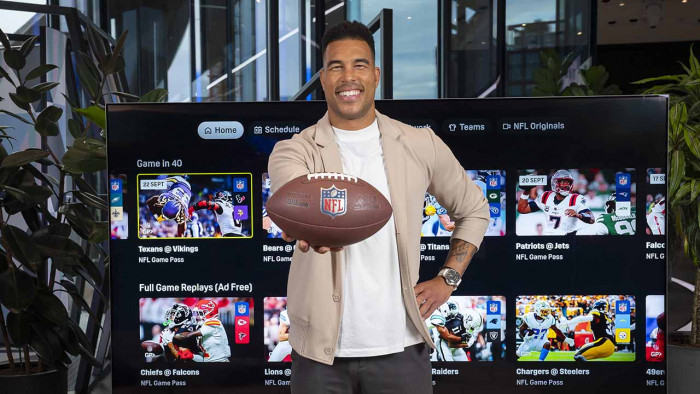Barcelona's home-grown stars have made them the best team in the world. Andy Mitten investigates how Premier League clubs are trying to catch up.
Sir Alex Ferguson had just witnessed his Manchester United team outclassed in the Champions League final by Barcelona for the second time in three years. As in Rome in 2009, he held up his hands and admitted that Barça were worthy victors — but he also made a pertinent point about the way elite youngsters are coached in England, compared with Spain.
“We are only allowed to coach youngsters for an hour and a half [as dictated by FA and Premier League rules], but they [Barcelona] can coach every hour of the day if they want to,” explained Ferguson. “They have a fantastic philosophy. We hope that in years to come, our coaches will be able to spend more time with young kids, to teach them the basics, the technical abilities and the confidence to keep the ball all the time.”
According to each country’s regulations, a top young player in Spain will have enjoyed an average 4,880 hours of coaching from the age of nine to 21, while an English player will typically have only 3,760. It could just be that the answer to English clubs’ seemingly fruitless pursuit of Barcelona lies in the way their youngsters are developed.
THE BARCELONA WAY
Seven of Barça’s starting XI against United at Wembley, plus a further four substitutes — not to mention the coach, Pep Guardiola — had come through their famed Cantera (translation: Quarry) at La Masia: a converted 17th-century farmhouse where young players live in the shadow of the Camp Nou. Those players — goalkeepers Victor Valdes and Oier, defenders Gerard Pique and Carles Puyol, midfielders Xavi, Andres Iniesta, Thiago and Sergio Busquets, plus forwards Pedro, Bojan and Lionel Messi — were schooled under Albert Benaiges, the long-term head of Barça’s academy who recently left to take up a lucrative post in the UAE.
“Messi?” recalls Benaiges. “He was a kid to whom you could say, ‘Look, there’s the ball, let’s play a match.’ He just loved playing football. He didn’t mind what level he played at — he just wanted the ball at his feet. Some kids play in the A team, but when you ask them to play for the B team, they pull a face. With Messi, he always gave everything and he was always the best.”
Most of the Catalan club’s current stars were developed under Benaiges’ expert guidance, and he has fond memories of working with them. “I saw different things in all of them,” he says. “They were all excellent. Iniesta was elegant, intelligent and could beat a player one on one. Xavi’s control of the ball is better than anyone I’ve seen in youth football.”
And that almost unparalleled close- ball control, which has remained with Xavi throughout his career, has been acknowledged by the midfielder as partly down to the way he was coached. “When I play, I pass and move,” said Xavi, while paying tribute to Benaiges to mark the coach’s departure.
“I look for a player, I stop, I raise my head. I open up the pitch. The one who has the ball is the master of the game. That was the philosophy of Johan Cruyff… and that was the school of Albert Benaiges.” The Barça players love him and with three of their number making up the final shortlisted trio for the 2010 Ballon D’Or, Barcelona took Benaiges to the ceremony as a special guest. There cannot be a higher accolade for any youth coach than seeing three of his former players voted first, second and third in world football.
Benaiges presided over a La Masia where players from outside Barcelona would sleep in dormitories and awake to see their first-team heroes training outside the front door. And those heroes wouldn’t just remain untouchable, distant figures, either, as former Barcelona reserve Ruben Rochina explained to ShortList: “It’s great being a young player at Barça. You work hard there and it’s tough. The competition for places is high, but you also have senior players showing an interest [in your development]. Xavi, [French full-back Eric] Abidal… I’ve seen them all talk to and encourage younger players.”
The much-heralded farmhouse closed last month and the young tyros moved to Barça’s new state-of-the-art training ground on the southern outskirts of the city. There, 58 young footballers live in twin-bed dormitories where personal development and football are equally prioritised. Fundamental to Barça’s success has been building the character of the young players. Egos are kept firmly in check; pushy parents encouraged to keep their distance. Recently, the father of a 12-year-old from Messi’s home town of Rosario was given short shrift from Benaiges after demanding too much money from the club. The father had been leaking information to the Argentinian media.
“Above all, I stressed discipline, manners and respect, coupled with a healthy lifestyle and strong academic skills,” Benaiges said on his departure for the Middle East. “We built holistically superior individuals, and that can only come by giving 100 per cent, because excellence allows for no less.”
THE ENGLISH WAY
Phil Cannon is the academy manager at Blackburn who oversaw the development of £16m Man United recruit Phil Jones.
“I looked at his videos when he was younger and he was an ordinary player,” says Cannon, “but such was his work ethic and desire to listen and learn, he became the great player that he is today. Other players just need more coaching.”
And he believes attitudes are finally changing here to allow for that extra tuition time. “English football has realised that contact time is vital to a player’s progression, and we’re starting to move with the times,” he says.
“Barcelona have been allowed to spend a lot more time with their players, which is crucial in their formative football years when they are aged eight to 12.” Dennis Bergkamp, the former Arsenal striker who’s now part of the coaching setup at Dutch champions Ajax, called those ages “the golden years of learning”.
Former Barça B player Rochina, who has now moved to Blackburn’s Ewood Park, confirmed to ShortList that the English methods were lacking when compared with Barcelona’s. “I was surprised at the standard when I came here,” he says. “I’m not being disrespectful to say that it’s not as high and you don’t study tactics as much. But I’m impressed that Blackburn always train with the ball, and we have really good players here.”
Cannon has been striving to ensure that the quality of the Rovers’ squad can match that of any of Europe’s elite, but he’s hampered by those strict rules concerning youngsters.
“Our players of that age [eight to 12] come in three times a week for two hours and then they have a game on a Sunday,” explains Cannon. “If we can increase that to 10-12 hours a week, then the performance and development of the players will go through the roof.
“We had one lad last year who we housed and schooled before he signed a scholarship,” says Cannon. “We had more time with him and his progression was incredible.” When it comes to recruiting the best young players, the Catalans benefit from warmer climes as well as being the best team in the world. They can cast their net wide to attract the most naturally gifted players and know that almost every footballer would like to play for them. That continues to first-team level, where they can play hardball whether trying to sign Cesc Fabregas or Alexis Sanchez.
Blackburn clearly aren’t Barcelona, but other factors affect recruitment. “Within 50 miles of Blackburn there are six other Premier League clubs, three or four of whom are very well off,” says Cannon. “It’s difficult to compete.”
IN RESERVE
Another factor that favours the Spanish model is reserve-team football. “In England, reserve teams play in empty stadiums against other reserve teams,” says Arnau Riera, the captain of a Barça B that included Messi in 2006 before he joined Sunderland. “In Spain, you play in real games in front of big crowds. You come up against seasoned pros who want to beat you because you are Barça. It’s a great learning curve and reduces the step up to being a first-team player.”
With reserve-team football in a state of flux, the Premier League is introducing an Elite Player Performance Plan, which will divide clubs into four categories of excellence from 2012-13. Clubs who qualify for Category 1 status will have access to England’s top prospects and, crucially, treble the time that they can coach them. Not that it’s all about coaching, though.
“We’ve been successful at Blackburn in the past 18 months because we’ve had managers who are prepared to put young players in the first team,” says Cannon. “Our manager, Steve Kean, wants to develop young players.”His Barcelona counterpart Pep Guardiola is equally keen on giving youth a chance and has promoted Pedro and Busquets from B-team players to European Cup and World Cup winners.
There’s a saying in Catalonia that Barça create stars while Real Madrid buy them. The Madrid slur could also be levelled at England’s top Premier League clubs. But once they’re finally allowed extra time with their young prospects, more will follow the path of Jones, Jack Wilshere and new Liverpool signing Jordan Henderson, towards the Premier League’s, and eventually Europe’s, A-list.
And that should also mean there’s every chance England fans may actually be able to watch future World Cups and European Championships from the comfort of their sofas, instead of hiding behind them.
(Image: All Star)
Latest
Related Reviews and Shortlists










